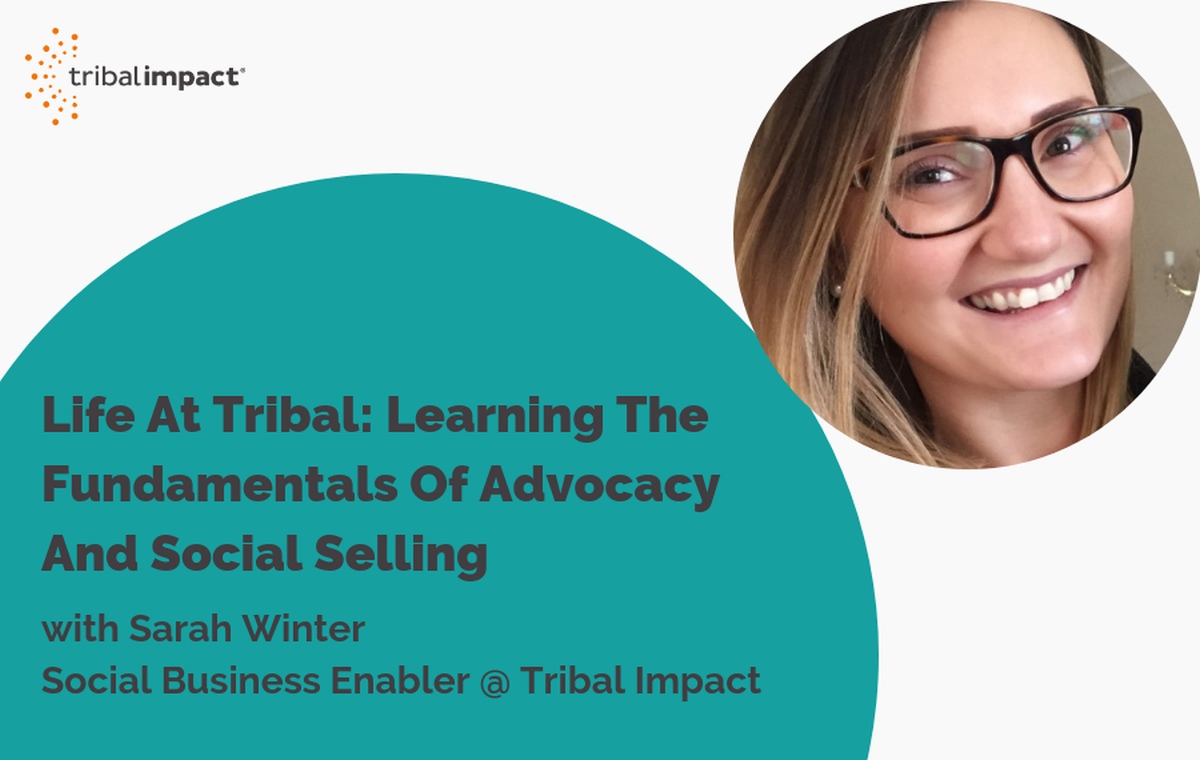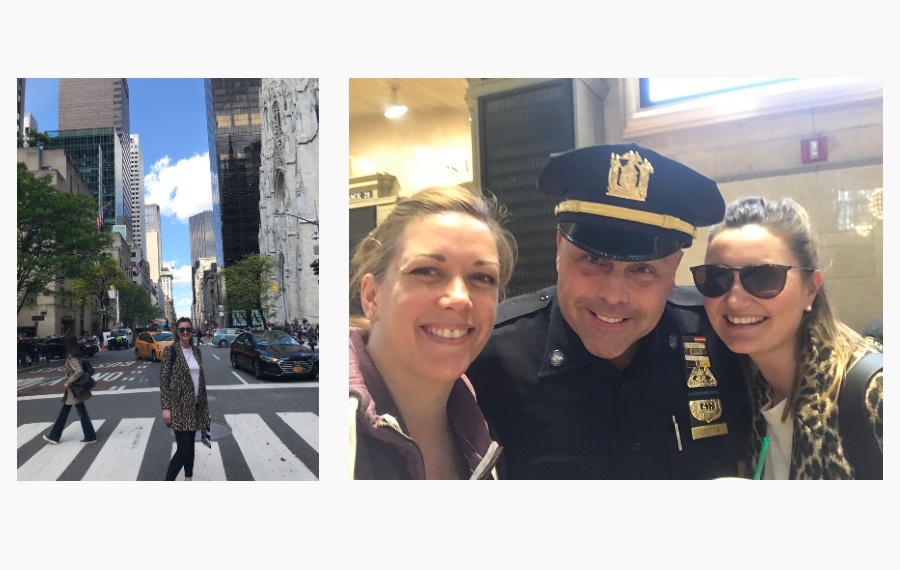Tribal’s Social Business Enabler, Sarah Winter, talks about her immersive journey with the Tribe so far and her experience of learning about social selling and employee advocacy.

I joined Tribal Impact as a Social Business Enabler in May 2019. My short journey has been a whirlwind of teamwork, hands-on experience and fast learning. But I wouldn’t have it any other way.
My first week with Tribal was all team calls, briefings and absorbing a whole world of new information especially since my background is predominantly in magazine publishing. But I had no idea my second week would be even more intense.
Tribal Impact is a business that ‘practises what they preach’. The business consists of a remote team (the Core Tribe) complemented by an extended tribe of specialists who support everything from delivering workshops to writing blogs.
Employee advocacy is all about having an empowered team, which is where Tribal Impact walks the talk. The team is together because it wants to be; knowledge is continually shared across platforms such as Microsoft Teams and the strength of belonging is tangible.
In At The Deep End
Around the time I joined the tribe, we won a major new contract. We needed to ramp up fast. It was all hands to the pump. I ended up flying to New York with a small team to deliver a ‘social selling week’. It was an amazing way to learn – I was so immersed in everything that happened, I couldn’t fail to pick up an understanding.
My biggest realisation since joining the tribe, however, has been that advocacy and relationship-based social interactions are a very natural way of working. I keep seeing real life examples. There are a few tv adverts currently doing the rounds that show a business from an employee’s eyes and this is exactly what we want our clients to do.
It just makes sense: people behave the same way whether they’re at work making a buying decision or at home thinking about buying a car. They ask others for their thoughts or recommendations. They want a trusted opinion and they do their research to ensure they get it.
Since joining Tribal, I’ve really noticed the unique culture of the business. In a way, that second week was like a working case study. To engender a culture of advocacy, you have to make everyone feel that they’re a part of something bigger.
They need to feel useful, valued, bought in to the business. The sense of team within Tribal is immense. I was catapulted into a situation where I saw great leadership, passion and total commitment to the cause. These people just embodied what they were selling. They really get it.

Leading By Example
Such a strong learning experience means I’m now perfectly placed to work with Tribal’s clients to help them transform into social businesses. I think the softer style of social selling has always been preferred (think used car or double-glazing sales if you’re still on the fence) but the difference today is that businesses have the tools at their disposal to really make it work.
I’ve come across a huge number of tools, apps and new ways of working since I joined Tribal. It’s clear that, for a social business to be successful, they need trust and transparency and some of the collaboration apps make this so much easier. If a business isn’t sharing internal knowledge, there’s no way they are encouraging their people to be a vocal advocate outside of the organisation.
At Tribal we’re lucky to have a leader in Sarah Goodall who really demonstrates those behaviours. She listens and is genuinely interested in expert opinions from the tribe. None of us are in any doubt that we’re an integral part of the success of the business so far and so we shout about what we do. It’s a mixture of pride and a natural way of communicating.
In my mind, employee advocacy grows from strong engagement and this, in turn, stems from strong leadership and the creation of a culture of trust and respect.
Our virtual approach to teamwork shows that we are all trusted and so advocacy is easy for us. We’re genuinely passionate, we’re inspired every day. But I think this approach is starting to become more obvious across the business world.
It’s a more natural way of working that’s growing because people aren’t willing to hate their jobs anymore. There’s too much choice and too much opportunity around for anyone to do something that makes them unhappy.
